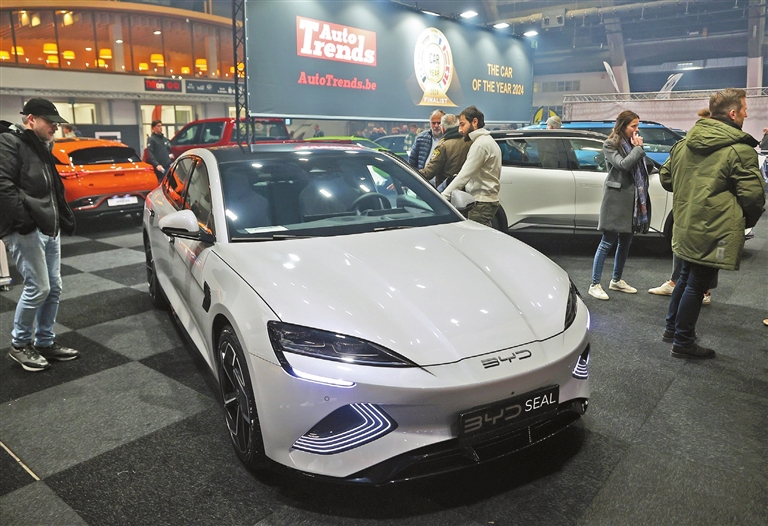
BYD and Uber Technologies have unveiled a multi-year partnership to bring 100,000 new electric vehicles (EVs) made by the Chinese car and battery giant onto the U.S. transportation firm’s ride-hailing platform worldwide. The new collaboration will kick off in Europe and Latin America and then expand to the Middle East, Canada, Australia, and New Zealand, both BYD and Uber announced Wednesday. The pair will also ally in developing autonomous vehicles for Uber’s platform, eastmoney.com reported. BYD did not disclose the models of the vehicles included in the partnership, although a poster on Uber’s official website highlighting the collaboration features BYD Seal, a sedan, Seal U, an SUV, and Atto 3, a compact SUV. To support drivers’ EV shift, the tie-up between BYD and Uber may include discounts on charging, car maintenance, or insurance, and financing and lease offers, depending on “what works best for drivers in a given market,” BYD said in a statement. “Uber and BYD share a commitment to innovate towards a cleaner, greener world, and I am excited to work together towards that future,” said Wang Chuanfu, chairman and president of the Shenzhen-based carmaker. Dara Khosrowshahi, chief executive of California-based Uber, said he was “thrilled about the benefits this partnership will deliver for drivers, riders, and cities.” When an Uber driver makes the switch to an EV, they can deliver up to four times the emissions benefits compared to a regular motorist, simply because they are on the road more, he explained. “Many riders also tell us their first experience with an EV is on an Uber trip, and we’re excited to help demonstrate the benefits of EVs to more people around the world,” Khosrowshahi added. As early as in 2021, Uber signed an agreement with car renting firm Hertz Global Holdings to offer discounts to drivers who rented Tesla cars. Uber has also worked with charging service provider EVgo and EV ride-hailing startup Revel Transit to offer discounts to drivers using their charging facilities. BYD’s net profit rose 10.6% to 4.57 billion yuan (US$636.3 million) in the first three months of this year from a year earlier, while its revenue rose 3.97% to 124.9 billion yuan. Last year, it became the first carmaker to sell over 3 million new energy vehicles in a year. (SD News) | 
